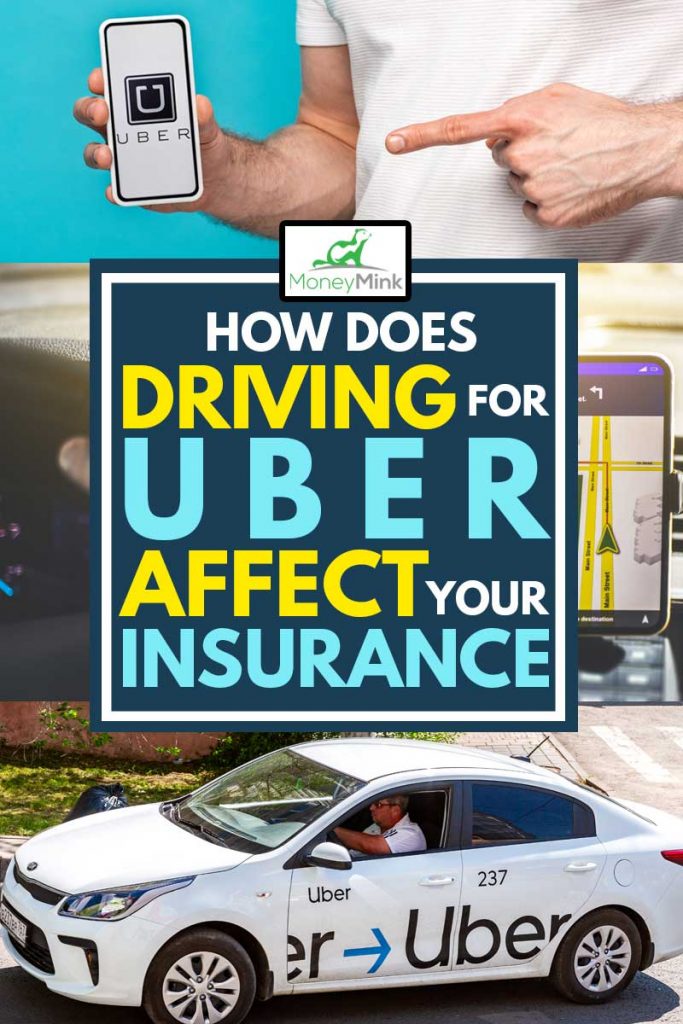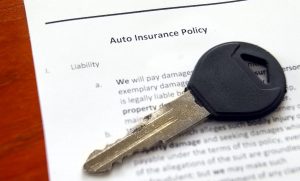Driving for Uber is a great way to earn some extra money using your car. But are you prepared to handle the effects it'll have on your insurance rates? If not, we've outlined how your current insurance will be impacted.
When you first acquired insurance for your car, you likely listed it for personal use only, meaning typical trips to and from work or other leisure driving. Once you start driving for Uber, you must let your insurance company know. They'll adjust your policy to accommodate the increase in driving and liability; prepare for a rise in your insurance rate.

Continue reading to get a deeper understanding of how your insurance policy is impacted by driving Uber.
How Much Does Your Insurance Go Up With Uber?
When you update your policy to include that you drive for Uber, your insurance provider will update your policy to commercial usage.
More specifically, you're calling to add what's called ride-share coverage. Not all insurance companies will have this policy. If you're shopping around for policies, make sure that this is an available option.
Additionally, you can shop for the best deals for a commercial policy. Since typical policies are for personal usage, commercial policies cover car usage for everything beyond that.
Regardless of which route you take, the increase in how much you pay per month won't be substantial; you'll have up to a 10% increase in your policy.
Auto insurance coverage has some gray areas in terms of when you're covered. In either of the cases mentioned above, this change in policy will keep you insured in the following scenarios:
- The drive you make to pick up the Uber requester
- During the wait for a request
- When an accident occurs en route to the requester's destination
Does Your Insurance Go Up if You Drive for Lyft?
Lyft, like Uber, also requires drivers to have an insurance policy meeting your state's minimum requirements.
Because Lyft is also a ride-share business like Uber, your insurance policy will also increase up to 10%, depending on the insurance provider.
What Coverage Does Lyft Provide?
When driving, Lyft will provide coverage beyond your policy in two scenarios.
The first is when you toggle the app on and are waiting for a ride request. This coverage includes the following:
- $50,000/person for body injury
- $100,000/accident for injury
- $25,000/accident for damages
The next is in the process of completing a ride:
- $1 million for liability
- Uninsured motorist injury
- $2,500 deductible for comprehensive and collision up to the cash value of the vehicle
Do I Need to Tell My Insurance I Drive for Uber?
Your insurance company is not legally required to know when you decide to use your vehicle for Uber. Additionally, Uber will not notify your provider when you sign up, and they validate your insurance.
However, failing to do so is a severe risk that puts your finances and your coverage on the line. As we mentioned earlier, there's a bit of a gray area with this topic. Your hands are tied in the following scenario described by Policy Genius.
When the app is off, or it's on, and you're waiting for a request, you're seemingly protected. Then you get a pickup request. At this point, you're driving for Uber who offers its coverage in certain situations. However, you get in an accident en route to the pickup. You try to make a claim, and it doesn't work from Uber or your policy.
Why is this?
For Uber, you won't be covered for the damages because nobody was in the car during the journey. They won't provide liability. Your insurance provider will reject your claim because the car was used for business and not for personal use, as the policy stated to be. Additionally, you may lose coverage entirely from this outcome.
In the end, you will have to pay out of pocket for all the liability expenses, injuries, and damages. Plus, you end up with no coverage at all anymore.
So before you even think to drive for Uber, add ride-share coverage or adjust your policy so you'd be covered in this kind of situation. Not doing so is very dangerous; all the money you'd earn won't even pay for a fraction of what expenses you could pay in the event of an accident.
Does Uber Verify Insurance?
To become a driver for Uber, you are required to meet the following requirements:
- Be of minimum driving age for the city you plan to drive in
- Have at least a year of driving experience
- Valid license
- A 4-door vehicle newer than 2005
You are also required to upload these documents at sign up:
- Valid license
- Proof of US residency
- Forward-facing profile photo
- Proof of vehicle insurance for your car
Because proof of insurance is one of the mandatory documents, Uber will verify that your insurance is valid.
Note that they won't verify for any specific policies. Nor will they call your insurance company during the verification process. The only time Uber will call your insurance provider is if you have an accident while ridesharing.
For this, we strongly urge that you add the necessary coverage to your policy just in case something happens. You will not enjoy the consequences if an accident occurs during one of the grey area scenarios we mentioned earlier.
How Long Does it Take for Uber to Approve insurance?
The process to verify won't take long. You'll know whether the document is accepted within one to three days. At the fastest, you'll receive a status update within two hours. Seven days is the longest you'd have to wait for the approval. Although, this would be unlikely unless there is difficulty in Uber viewing your document.
To make the process smoother, take a clear picture of your insurance. It needs to have your name and vehicle visible. Failure to do so, or uploading expired documents, will delay the process. It helps to avoid using the flash so it won't cause any glare.
Can You Use Someone Else's Car for Uber?
Generally, you would not be able to use someone else's car to drive Uber. The insurance documents you uploaded to your profile are for your vehicle only. Additionally, the details of the vehicle you drive for Uber (license plate, make, model) appears to those requesting a ride. It doesn't look good on you, Uber, or for the driver if they see a completely different car than the one listed.
That being said, you can drive someone else's vehicle if your name is on the insurance as well as the owner. Not every state is flexible with this, though; a few states will need your name on the registration and the insurance.
Can You Use a Rental Car for Uber?
If you're unable to use or lack your own car, you could use a special type of rental to drive for Uber. Thanks to rental company Hertz, Uber offers a service in some cities that allows people to rent or lease vehicles to use.
Any other rental outside of Uber's approval is not allowed. The use of an unapproved rental may cause you to be removed as an Uber driver permanently.
We recommend that you don't resort to this option, as the net income may not be worth it in the end. It may even cost you more money than it would make you if you were to rent a pickup truck for ridesharing.
Conclusion
While it's not a legal requirement to alert the insurance company that you drive for Uber, failing to do so is too severe a risk. Please update them before you begin the sign-up process. Your rate will go up because you will be driving a commercial motor vehicle, but the money you make from driving Uber will easily offset those costs within the first few rides.
Learn more about auto insurance here -
Does Auto Insurance Cover Medical Expenses?
Can Your Car Insurance Drop You? [and What to Do When That Happens]

![Read more about the article Can Your Car Insurance Drop You? [and What to Do When That Happens]](https://moneymink.com/wp-content/uploads/2019/11/Can-Your-Car-Insurance-Drop-You-and-What-to-Do-When-That-Happens-300x200.jpg)

